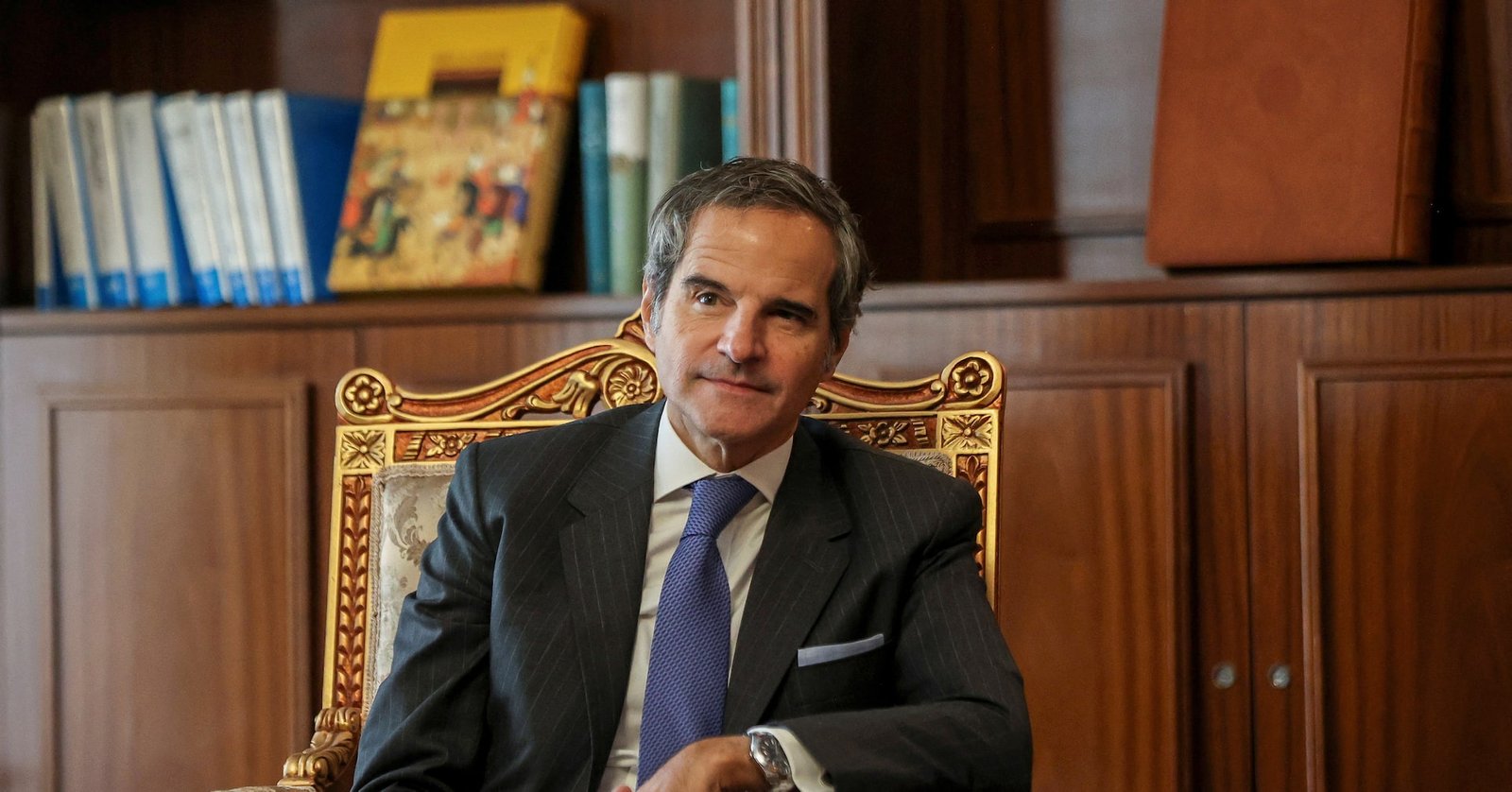
International Atomic Energy Agency (IAEA) Director General Rafael Grossi looks on as he meets with Iran’s Foreign Minister Abbas Araqchi (not pictured) in Tehran, Iran, November 14, 2024. Majid Asgaripour/WANA (West Asia News Agency) via REUTERS/File Photo Purchase Licensing Rights, opens new tab
- Tehran has enough material at up to 60% purity for four bombs
- Offers not to expand its stock beyond that level
- Offer conditional on no resolution against Iran, diplomats say
- Europeans, U.S. pressing ahead with text, they add
VIENNA, Nov 19 (Reuters) – Iran has offered not to expand its stock of uranium enriched to up to 60% purity, near the roughly 90% of weapons grade, and made preparations to do that, the U.N. nuclear watchdog said in confidential reports to member states on Tuesday.
The offer is conditional, however, on Western powers abandoning their push for a resolution against Iran at this week’s meeting of the International Atomic Energy Agency’s 35-nation Board of Governors over its lack of cooperation with the IAEA, diplomats said, adding that the push was continuing.
During IAEA chief Rafael Grossi’s trip to Iran last week, “the possibility of Iran not further expanding its stockpile of uranium enriched up to 60% U-235 was discussed”, read one of the two confidential quarterly IAEA reports, both seen by Reuters.
It added that the IAEA had verified that Iran had “begun implementation of preparatory measures”.
Iran’s offer was to cap the stock of uranium enriched to up to 60% at around 185 kg, or the amount it had two days ago, a senior diplomat said. That is enough in principle, if enriched further, for four nuclear weapons, according to an IAEA yardstick. Iran denies seeking nuclear weapons.
The report said Iran’s stock of uranium enriched to up to 60% had grown by 17.6 kg since the previous report to 182.3 kg as of Oct. 26, also enough for four weapons by that measure.
INSPECTORS
The second report said Iran had also agreed to consider allowing four more “experienced inspectors” to work in Iran after it barred most of the IAEA’s inspectors who are experts in enrichment last year in what the IAEA called a “very serious blow” to its ability to do its job properly in Iran.
Although the senior diplomat said they could be enrichment experts, diplomats said they could not be the same experts that were barred.
The reports were delayed by Grossi’s trip to Iran, during which he hoped to convince Iran’s new President Masoud Pezeshkian to end a standoff with the IAEA over long-standing issues like unexplained uranium traces at undeclared sites and extending IAEA oversight to more areas.
The draft resolution backed by Britain, France, Germany and the United States condemning Iran for its poor cooperation with the IAEA would also task the IAEA with issuing a “comprehensive report” on Iran’s nuclear activities, diplomats said.
The aim is to pressure Iran to return to the negotiating table to agree fresh restrictions on its nuclear activities since a 2015 deal with far-ranging curbs fell apart. Although most of its terms have been broken, the deal’s “termination day” formally lifting them is in October of next year.
It is the last quarterly Board meeting before U.S. President-elect Donald Trump takes office in January.
Trump pulled the United States out of the nuclear deal in 2018, which prompted its unravelling. It is far from clear if he would back talks with Iran, having pledged instead to again take a more confrontational approach and align Washington even more closely with Iran’s arch-foe Israel, which opposed the deal.
Sign up here.
Reporting by Francois Murphy; Editing by Kevin Liffey, William Maclean
Our Standards: The Thomson Reuters Trust Principles., opens new tab
